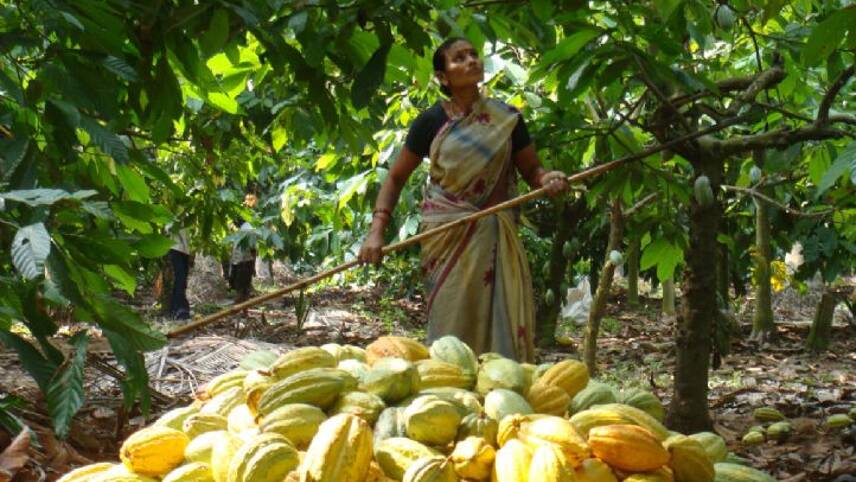Register for free and continue reading
Join our growing army of changemakers and get unlimited access to our premium content

The forest conservation efforts of more than 120
The commitment will see farms across Mondelez International’s three largest cocoa-sourcing markets – Ghana, the Ivory Coast and Indonesia – regularly monitored for forest loss using digital mapping technology. The satellites use Synthetic Aperture Radar (SAR) to “look” through the clouds and monitor the earth continuously.
Farmers found to be driving deforestation under the mapping scheme will receive additional education and support to conserve or reforest their local environments. If they fail to heed this advice, they risk being removed from Modelez’s supplier list.
The satellite mapping scheme forms an extension to Mondelez’s Cocoa Life programme, which has a headline aim of bringing fair wages and sustainable agriculture training to 200,000 farmers across six countries by 2022. It will apply to all farmers taking part in the initiative, which Mondelez hopes to eventually expand to cover 100% of its global supply chains.
“Mapping and monitoring farms will give us a deeper understanding of farmers’ needs so we can help drive effective change,” Mondelez’s associate director of Cocoa Life operations Cedric van Cutsem said.
“In addition, our plans include financial incentives that will encourage farmers and communities to protect and renew forest areas.”
The launch of the mapping scheme comes at a time when the Ivory Coast and Ghana are collectively supplying about 60% of the world’s cocoa. Both regions have high deforestation rates, estimated to currently stand around 3% annually.
Cocoa Life
Since the launch of the programme in 2012, Mondelez has invested more than $400m to accelerate the reach of its Cocoa Life scheme as it strives to eliminate deforestation and unethical worker treatment from its supply chains.
As of last Summer, Cocoa Life had reached 120,500 farmers across 1,085 communities, covering more than a third of the cocoa sourced by Mondelez.
A more recent addition to the initiative was a pledge to empower more than 100,000 women in four cocoa origin countries, providing them with better wages and education surrounding topics such as welfare rights, sustainable farming practices and youth outreach.
Beyond its own operations, the company’s Cocoa Life programme director Cathy Pieters has called on the cocoa industry to “be brave” when exploring new ways to enhance supply chain practices that ensure cocoa is sourced sustainably while bringing smallholder farmers out of poverty.
Similarly, Mondelez’s global director of sustainability Jonathan Horrell has urged all food and drinks firms to bolster their wider environmental and social commitments in the face of environmental crises.
Satellite mapping was recently named by edie as one of the nine innovations most likely to disrupt the corporate sustainability sphere in 2019.
In addition to tackling deforestation and overfishing in supply chains, the technology has use in locating and eliminating energy inefficiencies in buildings, tracking oil spills and preventing illegal shipping.
Sarah George


Please login or Register to leave a comment.